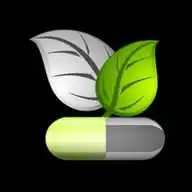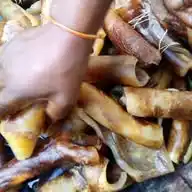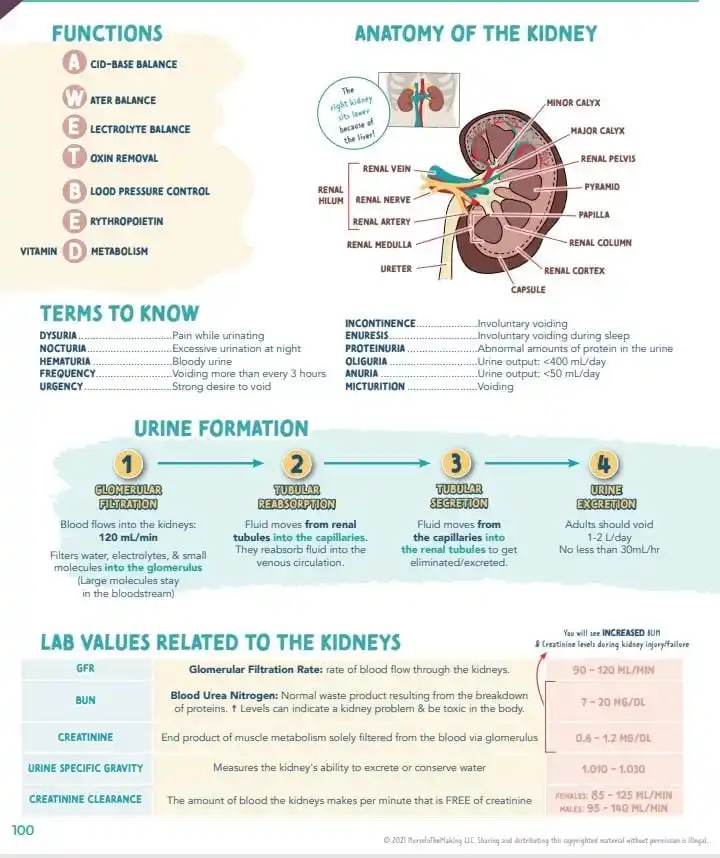
MedPulse Ke
1.2K subscribers
About MedPulse Ke
Welcome to Medpulse Ke 😌 We aim to • Share common diseases🤒 management and preventive measures • Healthy living tips • Up to date medical facts 🩺 • Recent inventions in the medical world 🌍 Whether you're looking to learn, know about the human anatomy and physiology or just curious about the human body you are in the right place Share with people who might need it. React👍 and interact with us here at MedPulse Ke👇 https://ngl.link/medipulseke
Similar Channels
Swipe to see more
Posts

Dealing with gout? Drink ginger lemon and tumeric to lower uric acid in your body

*🩺 Relationship Between Kidney Failure & Diabetes (Diabetic Nephropathy):* 1. *High Blood Sugar Damages Kidneys* - Over time, high glucose levels damage tiny blood vessels (glomeruli) in the kidneys. - This reduces the kidneys' ability to filter waste. 2. *Protein Leaks into Urine (Proteinuria)* - Early sign of diabetic kidney damage. - Healthy kidneys keep protein in the blood. 3. *Progressive Decline in Kidney Function* - Leads to *chronic kidney disease (CKD)* and can progress to *end-stage kidney failure* (ESKD). - May need dialysis or a kidney transplant. 4. *High Blood Pressure Worsens the Damage* - Diabetes often causes hypertension, which puts further strain on the kidneys. 5. *Prevention & Management:* - Control blood sugar and BP - Regular urine tests for protein - Use of kidney-protective drugs (e.g. ACE inhibitors) *🔗 Conclusion:* Diabetes is the *leading cause of kidney failure worldwide* — early control is key to prevention.

*💧 URINE FORMATION – HOW YOUR BODY MAKES PEE! 🚽🧠* *🔬 Takes place in the KIDNEYS – 3 main stages:* --- *1️⃣ FILTRATION (in the glomerulus):* • Blood enters the nephron • Waste, water, salts & small molecules are filtered from blood • Large proteins & cells stay in blood *➡️ What passes through becomes the *filtrate** --- *2️⃣ REABSORPTION (in the tubules):* • Useful substances like glucose, water, and salts are *reabsorbed* into the bloodstream • Body keeps what it needs --- *3️⃣ SECRETION:* • Additional wastes (e.g. urea, hydrogen ions) are *actively secreted* into the tubule • Helps maintain pH & electrolyte balance --- *🚰 Final product = URINE* • Water + urea + excess salts • Drains into bladder via ureters • Excreted through urethra --- *💡 Fun Fact:* Your kidneys filter about *50 gallons* of blood daily but only make about *1.5 liters* of urine! *Keep hydrated. Protect your kidneys.🩺*

🌍 *Global Statistics* - *Over 10%* of the world's population will develop a peptic ulcer in their lifetime. - *H. pylori infection* is the main cause, affecting about *50%* of the global population. - Peptic ulcers are slightly more common in *men* than women. - *NSAID-related ulcers* make up *20–30%* of all peptic ulcer cases in developed countries

*🩺 STOMACH ULCERS (Peptic Ulcers) – Know the Basics* *📍 What is an Ulcer?* An *ulcer* is an open sore that forms in the *lining of the stomach*, *upper small intestine (duodenum)*, or *esophagus* due to damage from stomach acid. --- *⚠️ Causes:* - *H. pylori* bacterial infection - Long-term use of NSAIDs (e.g. ibuprofen) - Smoking, alcohol, stress - Spicy foods (don’t cause, but can worsen) --- *💢 Symptoms:* - Burning stomach pain (often between meals or at night) - Bloating, nausea - Heartburn or indigestion - Dark, tarry stools (bleeding ulcer) --- *🧪 Diagnosis:* - Endoscopy - H. pylori testing (blood, stool, or breath test) --- *💊 Treatment:* - *Antibiotics* (if H. pylori is present) - *Proton Pump Inhibitors (PPIs)* – reduce acid - *Antacids* for relief - Avoid NSAIDs and trigger foods --- *✅ Prevention Tips:* - Avoid long-term NSAID use - Don’t skip meals - Limit alcohol & quit smoking - Manage stress - Treat H. pylori early

*🌬️ ASTHMA – BREATHE EASY, STAY READY! 🫁* *What is Asthma?* A *chronic condition* where the airways become inflamed, narrow, and produce extra mucus, making breathing difficult. --- *💨 Common Triggers:* - Dust & pollen 🌾 - Cold air ❄️ - Smoke 🚬 - Exercise 🏃♂️ - Allergies 🐶 - Strong smells or perfumes 🌸 --- *⚠️ Signs & Symptoms:* - Wheezing (whistling sound) - Shortness of breath - Chest tightness - Persistent coughing, especially at night or early morning --- *💊 Management:* - *Inhalers:* - *Relievers* (e.g. Salbutamol) for quick relief - *Controllers* (e.g. Budesonide) for daily use - *Avoid triggers* - *Regular follow-up with doctor* - *Emergency plan for attacks* --- *🚑 When to Seek Help:* - Trouble speaking - No relief from reliever inhaler - Lips turning blue - Severe shortness of breath --- *Take Control. Don’t Let Asthma Control You! 💪* Breathe smart. Keep your inhaler close. Stay active

❓ Did you know… Healthcare-associated infections are one of the most common problems in healthcare, affecting about 1 in 10 patients on average. 🙌 Hand hygiene is a simple yet powerful way to prevent infections—stopping up to 50% of avoidable infections during healthcare. Simple tips include: 🧼 Wash your hands with soap and water for at least 20 seconds. 🖐️ Use alcohol-based hand rubs if water isn’t available. 🧤 Don’t rely on gloves alone—clean hands before and after glove use. 🍽️ Wash hands before eating and after using the restroom. 🏥 Poor hand hygiene leads to longer hospital stays, higher treatment costs, and avoidable deaths. 📢 Everyone has the right to safe care—stay informed and speak up for hand hygiene. Clean hands save lives.

















